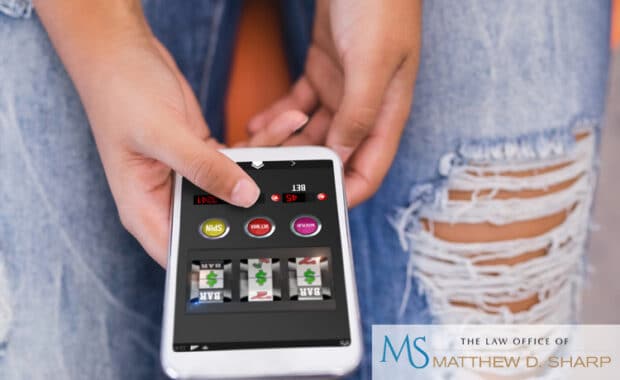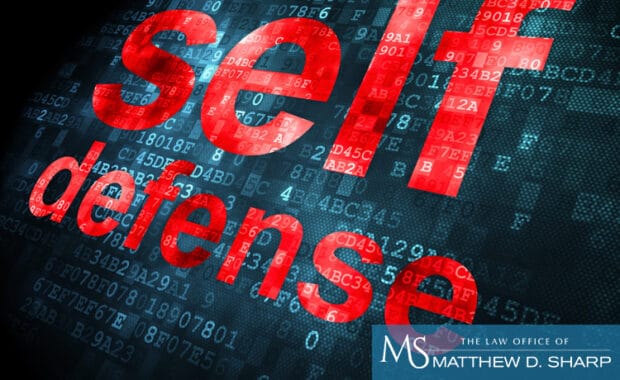You can be arrested for possession of drug paraphernalia in Texas. It is a serious crime to possess drug paraphernalia. In addition to other drug use or possession crimes, possession of drug paraphernalia is a separate criminal charge.
Drug paraphernalia is any item that’s used to consume, package, or process an illegal substance or drug. It is defined in Chapter 481 (Texas Controlled Substances Act) of the Texas Health and Safety Code.
What Does “Drug Paraphernalia” Mean?
Drug paraphernalia may include items legally purchased at a smoke shop or common household items such as bowls, spoons, scoops, syringes, paper clips, weight scales, and bags. A large amount of cash may suggest that the accused was selling drugs and/or drug paraphernalia to others.
However, a charge of drug paraphernalia possession typically involves items like pipes (metal, wood, or glass), combustion devices, roach clips herb grinders, gas masks, weight scales, bongs, cans, vaporizers, tubes (for snorting drugs) or rolling paper.
The Texas Controlled Substances Act allows law enforcement to consider almost anything as drug paraphernalia if it enabled him or her to use drugs or distribute them to others.
If an individual is charged with illegal possession of drug paraphernalia, he or she is believed to have cultivated, planted, concealed, manufactured, produced, stored, grown, compounded, tested, harvested, packed, propagated, repackaged, or contained any controlled substance.
What are the Penalties and Jail Time Associated with a Drug Paraphernalia Conviction?
Different charges may be used against the person accused of possessing drug paraphernalia:
- A simple charge of drug paraphernalia possession is a Class C misdemeanor. If convicted, the defendant faces a $500 fine.
- If the defendant is charged with possession of drug paraphernalia, or with the intent to sell these items, he or she faces a Class A misdemeanor. If convicted, he or she faces up to a year in jail and maximum fines of $4,000.
- Second offenses mean stiffer penalties and more jail time.
- If accused of selling drug paraphernalia to an individual under 18 years of age, the defendant faces a felony charge. If convicted, the offender will serve a sentence in state jail. Second or additional offenses will result in felony charges.
Drug paraphernalia possession and loss of Texas driver’s license
Possession of drug paraphernalia charges may result in suspension of the defendant’s Texas driver’s license. Even if the defendant wasn’t operating a motor vehicle when he or she was arrested, he or she faces driver’s license suspension if convicted of drug paraphernalia possession.
If the accused case isn’t dismissed, and he or she doesn’t receive deferred adjudication probation, the offender will lose his or her driver’s license for 180 days (if over age 21). If the offender is less than 21 years of age, he or she may lose their Texas driver’s license for up to one year.
Texas Drug Paraphernalia Laws
Texas is tough on drug users. Possessing even a tiny amount of illegal drugs can mean significant fines and jail time.
Unfortunately, getting caught with an illegal substance isn’t the only way to face a drug charge in the state of Texas:
- Possession of drug paraphernalia is a serious offense (though it’s not as serious an offense as possessing or distributing drugs or drug accessories to others).
- Getting busted for possessing drug paraphernalia is serious. If you or someone you love has been charged with possessing drug paraphernalia, reach out to an experienced criminal defense attorney in Houston now.
What Happens to First-Time Offenders?
- In some instances, the judge or law enforcement officer may offer the first-time drug offender with a deal if he or she is caught with drugs.
- Alternatively, the officer might confiscate the drugs he or she has on hand and cite him or her for possession of drug paraphernalia. This is a less serious charge.
- The judge might agree to accept a plea deal, providing the accused with the chance to plead guilty to a drug paraphernalia charge—instead of a drug possession charge.
- In contrast, a repeat offender might be required to face both drug possession and drug paraphernalia charges if the judge wants to show his or her displeasure.
What are the Legal Penalties for Drug Paraphernalia Possession?
A first-time offender caught with any type of drug paraphernalia items may face a Class C misdemeanor punishable by possible community service and a $500 fine.
A repeat offender probably won’t get off as easily: second or third offenses for possessing drug paraphernalia may be upgraded to an increased penalty category that may include jail time.
Drug paraphernalia sales may lead to harsher charges:
- The first-time offender convicted of distributing/selling illegal drug paraphernalia faces a Class A misdemeanor that’s punishable by up to $4,000 in fines and 12 months in Texas jail.
- Additional offenses may lead to felony charges, punishable by 90 days – one year in a state prison or jail.
- Penalties may be elevated for persons caught selling drug paraphernalia to persons under age 18. A first-time conviction for the charge is considered a state jail felony that’s punishable by fines up to $10,000 and 180 days – two years in state prison.
Consult Houston drug possession lawyer Matthew Sharp »
How Does the Prosecution Consider Convenience Stores and Head Shops?
The decision to prosecute a drug paraphernalia charge may fall into a legal gray zone. That’s because certain drug paraphernalia items have legitimate functions, too:
- A lighter or spoon in the accused’s pocket might appear harmless. In some scenarios, however, these items could be used to inject drugs.
- The judge or police officer frequently has discretion about this kind of scenario.
- This legal gray area can lead to a challenging situation. In all Texas cities, smoke shops or head shops sell water pipes, rolling paper, or vaporizers to anyone wishing to purchase them:
- A water pipe is often used to smoke tobacco or aromatic herbs (legal substances).
- Rolling papers are frequently used by people who roll their own cigarettes.
- Most convenience stores and head shops post signs alerting customers to the fact that these products must be used with legal substances.
Because it’s impractical for police and law enforcement agents to monitor and/or raid these retailers with the hopes of catching drug offenders, most operate comfortably in the legal gray zone. (Imagine that experienced criminal defense lawyer defending a client arrested in a head shop. He would argue that the client wanted to buy a water pipe or rolling papers to consume tobacco or other legally-allowed substances.)
Police aren’t powerless to make arrests in convenience stores or head shops
If an individual goes to a head shop to buy a bong, he or she might not be in imminent danger of arrest. However, if he or she is pulled over at a traffic stop and the officer sees the bong, it’s up to the officer to determine whether or not this is drug paraphernalia.
Should You Engage a Criminal Defense Lawyer to Handle a Drug Paraphernalia Charge?
If you’re interested in your future, you should take a drug paraphernalia charge seriously.
Many people facing a Class C misdemeanor charge may assume there’s no potential harm associated with paying a $500 fine.
However, if you’re interested in future expunction, or complete removal of the arrest and conviction your record, it makes sense to hire an experienced criminal defense attorney to handle the matter.
A knowledgeable Texas criminal defense lawyer can help you to resolve the Class C citation by 1) dismissal, 2) acquittal, or 3) making the citation eligible for future expunction.
Of course, if you’re facing a more serious drug charge and/or drug paraphernalia charge, it’s in your best interest to contact an experienced criminal defense attorney now. He will protect your legal rights.
Contact an Experienced Criminal Defense Lawyer in Houston TX
If you have questions about how your future might be affected by a drug paraphernalia charge, contact our experienced Texas drug crime lawyers at The Law Office of Matthew D. Sharp at 713-868-6100 now.






